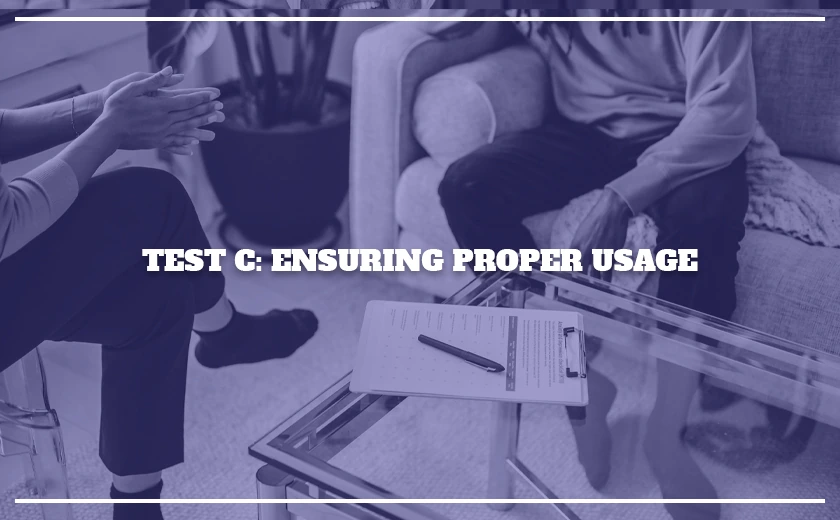Boost Your Performance with Testosterone Cypionate for Sale

Testo Cyp, a widely popular and effective anabolic steroid, has garnered attention for its ability to enhance performance and accelerate muscle growth in the realm of bodybuilding. With an extensive range of benefits, it has become a sought-after supplement among fitness enthusiasts. In this blog post, we will explore the potential advantages of this steroid and delve into the reasons why many individuals opt to buy this compound.
Understanding the effect of Test Cyp may offer invaluable insights into improving performance and obtaining your ideal physique, whether you're a seasoned bodybuilder trying to break through plateaus or a newbie hoping to optimize your gains. Let's investigate why people opt to buy Testo Cypionate and how it may advance your bodybuilding endeavors.
Important: in this article, we are talking about real Testosterone Cypionate, so there won't be any legal test enanthate alternatives or other manipulations with your search intent!
Buy real quality Testosterone Cypionate from trusted source!What is Testosterone Cypionate?
Testosterone cypionate is a synthetic variant of testosterone that is similar to the natural hormone produced in the body. It is classified as an androgen and anabolic steroid. In medical settings, it is primarily used to treat hypogonadism, a condition where the body doesn't produce enough testosterone. It is administered through intramuscular injections, typically given every one to four weeks, depending on the individual's needs and the prescribing physician's recommendations.
How Does it Work?
Testosterone cypionate works by supplementing the body with exogenous testosterone, which mimics the effects of natural testosterone produced by the testes. Once injected, it is slowly released into the bloodstream over an extended period. It binds to androgen receptors in various tissues throughout the body, including muscle cells, where it stimulates protein synthesis and promotes muscle growth and repair. Additionally, it affects other physiological processes, such as increasing red blood cell production, enhancing bone density, and influencing mood and libido.
Benefits of Test Cyp
There are several potential benefits associated with testosterone cypionate use. For individuals with low testosterone levels, it can help alleviate symptoms such as fatigue, decreased libido, muscle weakness, and mood disturbances. It can improve overall well-being, energy levels, and sexual function.
In some cases, test cyp may also lead to an increase in muscle mass, strength, and physical performance. However, it's important to note that the misuse or abuse of this steroid, such as using higher doses than prescribed or for non-medical purposes, can have serious health consequences and is strongly discouraged. Proper use should always be under the guidance of a qualified healthcare professional.

Test Cypionate Cycles
Test Cypionate cycles involve the planned and structured use of this compound over a specific period. These cycles are designed to optimize the benefits of the steroid while minimizing potential side effects. Proper understanding of this cycle is crucial to ensure safe and effective usage.
Overview of the cycle
The cycle typically consists of a period of "on" cycle, where the steroid is used, followed by a period of "off" cycle, where no steroids are taken to allow the body to recover. The duration of the on-cycle and off-cycle may vary depending on individual goals, experience level, and overall health. Test Cyp is often used as a primary compound in a cycle, but it can also be stacked with other anabolic steroids for enhanced results. Common goals of the cycle includes increased muscle mass, strength, and improved athletic performance.
Recommended dosage and frequency
The recommended dosage and frequency of Test Cyp cycles can vary based on factors such as individual tolerance, goals, and previous experience with anabolic steroids. However, a common dosage range for beginners is 300-500mg per week, while intermediate and advanced users may use higher doses of 500-1000mg per week. It is typically administered through intramuscular injections, with a frequency ranging from once a week to every other day, depending on the dosage and desired blood levels.
Length of cycles and considerations
The length of Test Cyp cycles can range from 8 to 16 weeks, although some individuals may extend it further. Shorter cycles are generally recommended for beginners to assess their tolerance and response to the steroid. Longer cycles may be employed by experienced users who have a good understanding of their body's reaction to the compound. It's important to note that prolonged use or high dosages can increase the risk of side effects and may negatively impact natural testosterone production.
Post-cycle therapy (PCT) is crucial to restore hormone levels and mitigate potential side effects at the end of a Test Cyp cycle. Additionally, regular monitoring of health markers, such as liver function and cholesterol levels, is important for overall well-being during and after the cycle. Consulting with a knowledgeable healthcare professional or a trusted steroid expert is strongly advised before initiating any testosterone cycle.
Real pharmaceutical grade Testosterone Cypionate for sale in USA and WorldwideCypionate Dosage and Cycle Recommendations
Testosterone cypionate is a popular anabolic steroid used for various purposes, including medical treatment and performance enhancement. When considering its usage, understanding the appropriate dosage and cycle recommendations is essential. The table below provides a comprehensive guide to help individuals make informed decisions about TestoCyp dosages and cycles.
| Experience Level | Dosage Range (per week) | Cycle Length |
|---|---|---|
| Beginner | 300-500mg | 8-12 weeks |
| Intermediate | 500-750mg | 10-14 weeks |
| Advanced | 750-1000mg | 12-16 weeks |
Finding a Reliable Source of Test Cyp

Testosterone cypionate is commonly used for medical purposes to treat low testosterone levels, but it is also sought after by athletes and bodybuilders for performance enhancement. It is crucial to approach the purchase of Test Cyp with caution, ensuring that you find a reliable and reputable source to ensure the quality and safety of the product.
The importance of purchasing from reputable sellers
Purchasing testosterone cypionate from reputable sellers is of paramount importance to safeguard your health and ensure the legitimacy of the product. Reliable sellers adhere to strict quality standards and often have a solid reputation within the community. They understand the importance of providing genuine products that meet safety and efficacy standards. Buying from reputable sellers reduces the risk of purchasing counterfeit or contaminated substances, which can have serious health consequences. By choosing a reliable source, you can have confidence in the authenticity and quality of the Test Cyp you are purchasing.
How to identify authentic Testosterone Cypionate?
Identifying authentic testosterone cypionate requires careful consideration and scrutiny. One of the key factors is to ensure that the product is obtained through legal channels, such as with a valid prescription from a healthcare professional. If purchasing from alternative sources, look for indications that the seller is licensed and operates within legal boundaries.
Authentic Test Cyp will typically come in sealed packaging with proper labeling and batch numbers. Checking for holograms or security features on the packaging can also help verify authenticity. Additionally, researching the manufacturer and checking for any certifications or accreditations can provide further assurance of the product's authenticity.
Factors to consider when choosing a supplier
When choosing a supplier for testosterone cypionate, several factors should be considered. Firstly, reputation and customer reviews are vital in assessing the reliability and trustworthiness of a supplier. Look for feedback from other customers to gauge their experiences and satisfaction. It is also important to consider the supplier's adherence to quality control and safety standards.
A reputable supplier will prioritize product quality, proper storage conditions, and accurate dosages. Pricing is another factor to consider, as excessively low prices may indicate counterfeit or low-quality products. Lastly, ensure that the supplier offers secure and discreet shipping methods to protect your privacy and maintain confidentiality throughout the transaction process.
Where to Buy Test Cypionate Safely and Legally
When seeking to buy testosterone cypionate safely and legally, it is important to navigate through legitimate avenues. It is a controlled substance and should be obtained through legal means, such as with a valid prescription from a healthcare professional. While there are online sources that claim to offer Test cypionate, it is crucial to exercise caution and ensure compliance with legal and safety standards to protect your health and well-being.
Online pharmacies and reputable suppliers
Online pharmacies and reputable suppliers can be a viable option for purchasing testosterone cypionate safely and legally. Trusted online pharmacies operate in compliance with regulatory guidelines and require a prescription before dispensing the medication. These pharmacies source their products from licensed manufacturers and provide quality assurance. Reputable suppliers are also an option, but it is essential to conduct thorough research to ensure their legitimacy and adherence to safety and quality standards. Look for suppliers with positive customer reviews and a track record of reliable service.
Considerations for purchasing Testosterone Cypionate online
When purchasing Test cypionate online, there are several important considerations to keep in mind. Firstly, verify the legitimacy and accreditation of the online pharmacy or supplier. Look for proper licensing and certifications to ensure compliance with legal requirements.
It is also crucial to assess the transparency of the supplier's operations, including their policies on product quality, storage, and shipping. Check for customer support availability to address any concerns or queries. Additionally, be cautious of excessively low prices or offers that seem too good to be true, as they may indicate counterfeit or substandard products.
Ensuring privacy and confidentiality of the purchase
Maintaining privacy and confidentiality during the purchase of Test cypionate is essential. Look for suppliers or online pharmacies that prioritize the protection of personal information and employ secure payment methods to safeguard financial details. Pay attention to the supplier's privacy policy and ensure that they have measures in place to protect customer data.
Discreet packaging and shipping options are also important to ensure that the nature of the product remains confidential throughout the delivery process. By choosing reputable sources and prioritizing privacy, you can safely and legally purchase testosterone cypionate while safeguarding your personal information.
Ensuring Proper Usage of Test C

Proper usage of testosterone cypionate is essential to achieve the desired outcomes while prioritizing health and safety. It is crucial to follow recommended guidelines and consult with a healthcare professional who can provide personalized advice based on your specific needs. Whether you are using Test C for medical purposes or performance enhancement, obtaining it through legal and legitimate means is of utmost importance.
Dosage and administration are critical aspects of ensuring safe usage. It is vital to adhere to the prescribed dosage and frequency as determined by a healthcare professional or in accordance with established guidelines. Never exceed the recommended dosage, as it can lead to an increased risk of side effects and potential health complications. By following the proper dosage and administration protocols, you can maintain the balance of testosterone levels in the body and minimize the potential for adverse effects.
Regular monitoring of hormone levels and overall health is also crucial during Test C usage. Periodic blood tests can help assess the impact of the treatment and ensure that hormone levels remain within a healthy range. This monitoring allows healthcare professionals to make any necessary adjustments to the dosage or treatment plan. Additionally, being aware of and promptly addressing any potential side effects is essential for maintaining overall well-being and minimizing risks.
TestoCyp vs. Other Testosterone Forms
Testosterone cypionate is one of the many forms of testosterone available on the market. Each form of testosterone has its own unique characteristics and properties. To help understand the differences between TestoCyp and other testosterone forms, the table below provides a comparative overview. This table highlights key factors such as ester type, half-life, dosage frequency, and typical uses, allowing individuals to make informed decisions about which form of testosterone may be most suitable for their needs.
| Testosterone Form | Ester Type | Half-Life | Dosage Frequency | Typical Uses |
|---|---|---|---|---|
| TestoCyp | Cypionate | 8-10 days | Once every 7-14 days | Hormone replacement therapy, performance enhancement |
| TestoEnan | Enanthate | 8-10 days | Once every 7-14 days | Hormone replacement therapy, performance enhancement |
| TestoProp | Propionate | 1-3 days | Every other day or daily | Performance enhancement, shorter cycles |
Conclusion
In conclusion, when considering testosterone cypionate, it is crucial to prioritize safety, legality, and authenticity. It is recommended to obtain it through legitimate channels, such as with a valid prescription from a healthcare professional or reputable sources. Online pharmacies and reputable suppliers can provide a convenient option, but thorough research and verification of their legitimacy and adherence to quality standards are essential. Authenticity can be ensured by checking for proper labeling, packaging, and security features.
Additionally, maintaining privacy and confidentiality throughout the purchase process is important. By taking these considerations into account, individuals can make informed decisions and obtain TestoCyp safely and legally, prioritizing their health and well-being.